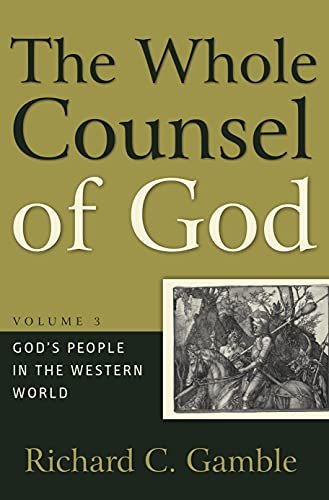The Method of Christian Theology - A Review
If there is a list of people’s favorite topics in religious studies, theological method is probably not on it. Theological method is like exercise fundamentals for sports—it’s the drill, the stretching, the knowledge of warmup and cooldown technique. Theological method is learning the optimal stride length, the number of strokes per length, or the way to hold your head when you are trying to fake the defender out.
In other words, theological method is extremely important for being really good at theology, but it’s the part of the process that most people like to skip right by. In reality, unless there is something quite wrong, you can produce what appears to be reasonably sound theology without a lot of thought to method. However, when the fundamentals are wrong it limits your future prospects, makes it harder to fix problems later on in your development, and can lead you in unhelpful directions.
Theology method is not sexy, but it is very important.
Rhyne Putman’s book, The Method of Christian Theology: A Basic Introduction, provides an accessible, engaging entry into the fundamentals of the discipline.
Summary
This book is divided into four different parts, unevenly sized, that walk readers through the prolegomena––the foreword, so to speak––of theology. Part One begins by providing an overview of theology, its nature as a process of describing truth, its components and purpose of making disciples, followed by an overview of the various ways that people approach theology—biblical, systematic, etc. Part Two emphasizes the need to be the right sort of person to pursue theology and have a mind ready to receive God’s word and think through that. The third part shifts to the practical by considering method-proper. Putman begins with Scripture, which is the supreme authority for Christian theology. He then considers the place of tradition, philosophy, and experience within the theological project. Only then does he sketch a basic procedure for doing theology. Part Four lands the book with the important, but oft neglected practical aspects of theology: proper contextualization, writing a research paper, and preaching a doctrinal sermon. The conclusion of the volume again emphasizes the importance of making disciples.
Analysis
There are various ways that a book on theological method could be approached. Some authors do primarily descriptive work, showing how various theologians have approached the task of theology. Some focus on a critical approach, outlining, diagnosing, and seeking to correct the work of others. Putman’s approach includes some of those aspects, but his primary focus is on helping the prospective theologian be the sort of person who can do theology well and to outline an approach that will help that budding teacher to make disciples.
There are other good books on theological method on the market. In fact, in terms of the raw content, Putman’s book is a standard work that stays cleanly between the lines of orthodoxy, especially as it is expressed in the Protestant evangelical tradition that most Baptists call home.
The emphasis on the character of the theologian is a strength of this volume. At the heart of Putman’s arguments is the belief that “The end goal of critical theological study is not building an academic program impenetrable to people in the pews but building the kingdom of God through seeing transformed lives, churches, and cultures through Christian disciple-making.” (44) Elsewhere he writes, “I grow frustrated with professing Christians who don’t seem content until they have something to be angry about. With their own ‘outbursts of anger,’ they police the thoughts and behaviors of others but seem blind to their own quarrelsome and bullyish ways.” (92)
Putman is not interested in raising up a generation of warrior children of the conservative resurgence, who tend to confuse contending for the faith with being contentious about the faith. Neither is he looking to increase the nerd-quotient of the local church. Instead, he sees the method of theology as becoming a better disciple of Christ that is equipped to make disciples for Christ. This is a significant and vital difference.
Conclusion
The Method of Christian Theology would be a good course text for an undergraduate or intro-level seminary course on systematic theology. It would also be an excellent resource for training a group of elders or simply encouraging doctrinal thinking among the laity in a local church. The book is beyond what might be useful in most contexts for Sunday school. However, my intention is to use it as an introductory text for a high school systematic theology course.
As someone who has studied theology for a number of years, this was a refreshing and encouraging book. For the pastor seeking to deepen his understanding of doctrine or refocus his interest in theology, this would also be a helpful resource.







Reading your Bible is a battle. There’s a reason why Paul lists Scripture as the sword of the Spirit in his discussion of the armor of God (Eph. 6:17). More even than that, Scripture reveals God’s character and is, thus, central to worshiping well (Psalm 119). That’s why reading the Bible is a battle.